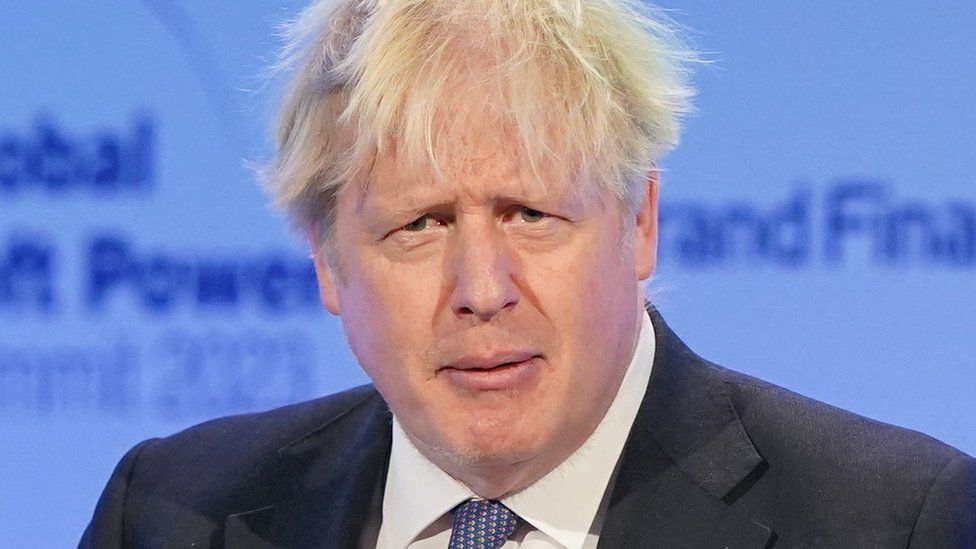ARTICLE AD BOX
 Image source, PA Media
Image source, PA Media
By Chris Mason
Political editor, BBC News
Boris Johnson's reputation is on trial. His political future is on trial too.
Not in a court of law. But, rather like a court of law, in front of his peers.
In this instance, the judge and jury are his fellow MPs, exploring a narrow question in relation to all those partygate revelations.
Did he knowingly mislead parliament about them? Parliament's Privileges Committee will ask him about it on Wednesday afternoon, in front of the cameras.
It's likely to last perhaps two to three hours. At the heart of their scrutiny are three words:
Inadvertent. Reckless. Intentional.
Attach the word "misleading" to these three words and we get to the crux of all this. The extent to which he was misleading and the intent.
The committee acknowledges that around 100 times a year ministers end up saying stuff in parliament that turns out to be inadvertently misleading and they come back and correct things.
So the real crunch point in all this is whether the committee establishes and concludes that he was reckless, or the more serious, but rather difficult to prove case that he intentionally misled MPs.
Some of Mr Johnson's allies think the case of recklessness has been introduced because the committee won't be able to prove intent.
Since the autumn the former prime minister has had a legal team of around five people working on his case. Among them Lord Pannick KC, Jason Pobjoy and solicitors.
They have compiled a document of around 50 pages, in Mr Johnson's name but assembled with the advice of his lawyers, that was submitted to the committee on Monday afternoon. It will be published by the committee on Tuesday.
I understand it will contain what his team will argue amounts to evidence that he did not knowingly mislead parliament.
Instead, they will claim he shared at the time with MPs what he was told by his advisers was an accurate picture of what was known about what had gone on.
Critics will — and already have - argued that this couldn't possibly be the case given he had actually attended some of the gatherings we later learnt about.
So the stage is set for Wednesday afternoon. Seven MPs. Four Conservatives. Two Labour, including the chair, Harriet Harman. And one from the SNP.
Like any select committee, the questioning will begin from the chair, and then each MP will take it in turns to ask their set of questions. The committee has been meeting this week to divide up who will ask what and in what order.
So could this end Mr Johnson's political career? Well, it might not. But it could.
It's worth saying plenty of Conservative MPs think, hope, it is as good as over already. Others dream of political reincarnation.
If the committee were to recommend a suspension from the Commons of 10 or more days, and MPs endorsed this, he would face what is known as a "recall petition" in his constituency, which could lead to a by election.
There are a lot of coulds and caveats before that point.
Once Mr Johnson is done on Wednesday, the committee will have to decide if it wants to talk to anyone else (I'm told that's unlikely) or hear, via written testimony, from anyone else. That's possible.
And then they'll write up and publish their findings. That, I'm told, will definitely be before the summer, but probably after Easter. And any suggested sanction will then be voted on by MPs.
The story of Boris Johnson is far from over.

 1 year ago
50
1 year ago
50








 English (US) ·
English (US) ·